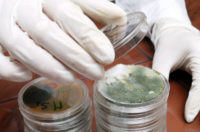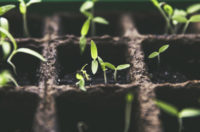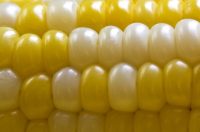The date is September 22nd. The year is 1692. On Gallows Hill in Salem, Massachusetts, a mob gathers. They are there to witness eight of their friends and families sentenced to death. The crime? Witchcraft! The bloodthirsty crowd is immune to the tears of the condemned. In their eyes, they have committed the most unforgivable of sins. They have sold their souls to Satan and must pay the price.
Can Human Beings Hibernate?
When Mitsutaka Uchikoshi got lost on a Japanese mountain, his chances of survival were slim. He had no food, water, or protection against the environment. Mitsutaka became separated from his climbing party on Mount Rokko. The last thing he remembers is lying down in a grassy area. He felt exhausted, but relaxed in the sunshine. He fell asleep, and his metabolism slowed to a standstill.
Sloppy Scientist Saves A Hundred Million Lives
Mold is all around us. In the air and on our food, it can make us sick and gross us out, but not all molds are bad. Some can make delicious food and others can save lives. One famous mold, discovered by accident by a sloppy scientist, became the first antibiotic medicine: penicillin.
Scientists Gave Their Lives Protecting Seeds
“All human life, all life, depends on plants,” says Jonathan Drori in his TED talk about the Millenium Seed Bank. This project involves collecting seeds in an underground storage facility strong enough to withstand a nuclear attack. It holds over 2 billion seeds, which represent over 10% of the world’s variety of plants.
Survivors
Ma Yuanjiang survived eight days trapped under the rubble of an earthquake in China. He had no food or water, so he ate paper and drank his own urine. Ma had no training in survival. He was a business executive, yet somehow, against all odds, he survived longer than almost anyone else who has ever been trapped. How could this be? Movies and books often depict survivors as tough, confident guys, who know everything. But what about in real life? Who is most likely to survive a disaster?
The End Of The World As We Know It
Preppers are people who believe the end of the world is coming, and you better be prepared. What exactly is a prepper preparing for? Well, the word ‘prepper’ is a catch-all term. The modern-day prepper might be preparing for a biblical end of days or an economic collapse that results in chaos. Natural disasters such as tsunamis and massive earthquakes are also common prepper fears. And, of course, a terrorist attack is also a prepper favorite.
Food Is Free
In some cultures, such as in the US, having a front yard of green grass is not only considered beautiful, it’s also a status symbol. In fact, it’s so important that some towns actually make it illegal not to grow grass. But what if we were to use this land for something more useful? What if we saw the land in our communities as a resource that could provide free food to everyone?
You Are What You Eat
Twenty-seven-year-old Angus Barbieri was a big man with a big appetite. At 456 pounds, he was also classified as “grossly obese.” Unhappy with his weight, he decided to take matters into his own hands. In 1965, the six-foot man visited a hospital in Dundee looking to lose a few pounds. The doctors advised Angus to go on a short fast. They believed it might help him lose a little weight. They recommended he fast for 40 days, but they didn’t have high hopes that he would be successful.








